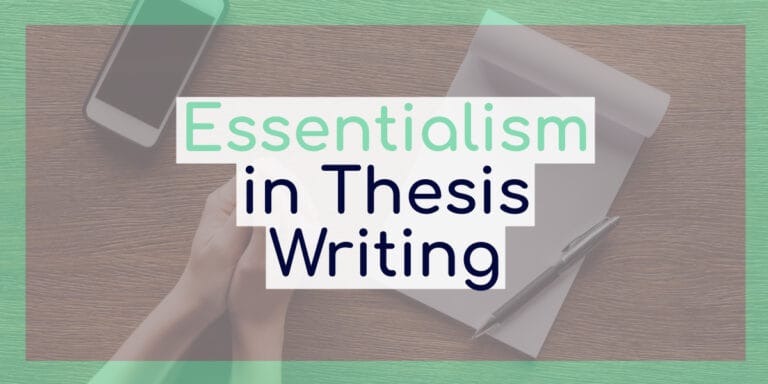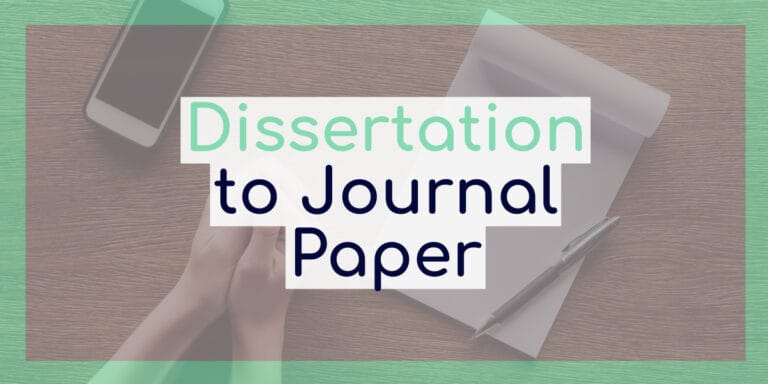Productive Academic Writing: Go Structure-First!
Discover a proven structure-first writing method that boosts productivity, improves collaboration with co-authors, and helps you get the most out of AI tools in academic writing.
Discover a proven structure-first writing method that boosts productivity, improves collaboration with co-authors, and helps you get the most out of AI tools in academic writing.
Table of Contents Relevance Scientific relevance Social and practical relevance Known Gap Conclusion Choosing the right dissertation or thesis topic is one of the most crucial decisions you’ll make during your thesis writing journey. But you cannot just chose a…
Thesis writing can feel like an overwhelming mountain to climb. But fear not, intrepid scholar! By breaking down the process and focusing on specific skills, you can transform this challenge into a rewarding academic journey. This blog post will guide you through key aspects of thesis writing, drawing from the wisdom shared in a recent seminar.
Embarking on the journey of thesis writing is a milestone in any academic career. It's a process that tests not only your knowledge and research capabilities but also your ability to communicate complex ideas effectively. In this comprehensive guide, we will explore the essential elements of thesis writing, offering insights and strategies to help you navigate this challenging yet rewarding endeavor.
What goes into a method section? That's a classic question.
There are three main components, plus one additional element for theses, that you need to consider in your method section. The goal of each method section is to make research reproducible, not just to clarify what you did and help people understand. You want to provide all your tools, so the research can be replicated.
Embarking on the thesis writing process is akin to embarking on a grand academic adventure. It requires not only an understanding of your subject matter but also a structured approach to navigate through various stages. In this guide, we'll explore the stages of thesis writing, offering insights to help you craft a comprehensive and compelling thesis.

In the realm of academic research and thesis writing, the journey often intertwines with complexity and an overload of information. This is where the principles of Essentialism, eloquently captured in the book "Essentialism: The Disciplined Pursuit of Less," become particularly relevant. Essentialism isn't about how to get more things done; it's about how to get the right things done. For a researcher or thesis writer, this means laser-focusing on what truly adds value to their academic pursuit.

In the world of research, especially when conducting qualitative studies, obtaining informed consent is not just a formality; it's an ethical imperative. In this article, we'll delve into the nitty-gritty of informed consent, from its definition to the practical steps involved in obtaining it.

In this post, I'd like to answer the question: is it feasible for a journal to refuse to publish your research because of its conclusions? You'd probably like to hear a clear, rigid "no" here. Unfortunately, it's usually not that clear-cut.

For this post, I was asked to answer the question, whether one can publish parts of the PhD thesis (dissertation) in a journal publication.
The answer is yes, I'm quite clear about that. But there's a very important consideration to keep in mind. That is, can you submit it before or after you have submitted your thesis?